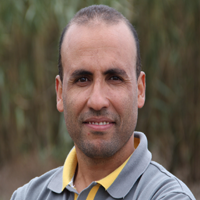وصفت الصحافة بأنها مهنة المتاعب لارتباط موضوعها بالوقائع والأحداث الميدانية، ولتعلق مصداقيتها بالقرب من مصادر الخبر، عن طريق التحري والتتبع والمعاينة، ثم الاستجواب والتحقيق والتصوير..إلخ، وهي إجراءات وأشكال يصعب أن تستغني عنهما صاحبة الجلالة مهما تطورت وسائل الاتصال أو ظهرت أخرى بفعل التطور الصناعي، ترسيخا منها لمقولة "ليس من رأى كمن سمع".
لكن، ماذا إذا تحول هذا الاستثناء إلى قاعدة؟ هل يمكن أن نرى مهنًا إعلامية من البيت، على غرار المهن السينمائية مثلا؟ أليست أقل تكلفة من العمل في مكتب المقاولة الإعلامية؟
صحافة واحدة ومتاعب متجددة
كان لافتا استنجاد القنوات التلفزيونية في المغرب ببعض "نجوم" وسائل التواصل الاجتماعي للمساهمة في التعبئة العامة ضد انتشار وباء كورونا، والتعريف ببرامج السلطة خلال فترة الحجر الصحي، ودعوة المواطنين إلى الانصياع لتوجيهات وزارتي الداخلية والصحة. ووصل الأمر إلى مناقشة تلك التدابير في الأستوديو خلال نشرات الأخبار، وقد تابعنا كيف أصبحت هندسة "البلاطو" في القناة الثانية المغربية تشي بالحماسة والعفوية، وأظهرت أكثر الجانبَ الإنساني في المذيع بتخليه عن اللغة الرسمية في إذاعة الأخبار وتعويضها باللغة الدارجة. فهل هذا هو دور الإعلام في مثل هذه الأزمات، أم أن حالة التعبئة العالمية جعلت غرفة الأخبار تابعة للجان اليقظة الاقتصادية في إطار الواجب الوطني.
هكذا نرى أن هذا النموذج يمثل شكلا من أشكال الانصهار بين عمل الصحافة داخل بيئة إعلامية يمر فيها الخبر عبر مراحل معينة ليصل في الأخير إلى المتلقي/المتفاعل، والخطاب المفتوح الذي نجده في وسائل التواصل الاجتماعي، وهي صورة تجسد أن الصحفي خُلق إلا ليتعب.
مراسل من البيت
لقد أثبتت جائحة كورونا (كوفيد-19) أننا يمكن أن نتخلى مكرهين عن أشياء كثيرة في حياتنا اليومية، سواء ما يندرج منها في إطار العادات اليومية التي تفرضها العلاقات الاجتماعية، أو تلك التي في جوهر العمل المهني بجميع القطاعات. وقد كان أكبر تحول/تحدٍّ هو الصيغة الطارئة في عقد اللقاءات والاجتماعات، والتي تحولت من استثناء إلى قاعدة، فظهر كأن إنسان الألفية الثالثة كان يستعد منذ ظهور الذكاء الصناعي لأجواء العزلة والتباعد الاجتماعي.
وفي هذا الإطار، أسست الهواتف الذكية، ووسائل التواصل الاجتماعي، وباقي تطبيقات المحادثة عبر الإنترنت بديلا للقاءات التقليدية -المحظورة الآن بتوصيات السلطات الصحية والإدارية عبر العالم- بين المراسلين وغرف الأخبار، إذ هناك نشرات أخبار وبرامج تلفزيونية قدمت من البيت من بدايتها إلى نهايتها. إذن، كيف يمكن للإعلامي عموما (المحرر، والمراسل، والمذيع، والمنتج، والمصور..) أن يعمل في ظروف كهاته وتصبح هي القاعدة لديه؟ وما التفاوت الحاصل بين جنس إعلامي وآخر؟ وما وجه المقارنة بين وتيرة عمل كل من الصحافة الفنية مثلا، وباقي المجالات؟
أما زال الصحفي يحتاج يوميا إلى تجهيزات المكتب في ظل ذكاء التكنولوجيا و"رشاقتها"؟ وهل حان الوقت لدخول مواهب التدوين وصناع المحتوى البصري (Vlogger) ميدان المهنة دون شهادات جامعية؟
الدراما تكسر البطالة
تعد الأنشطة الفنية أكثر المجالات التي شملها الركود شبه التام خلال فترة انتشار وباء الفيروس التاجي "كوفيد-19"، خاصة فنون العرض بالقاعات أمام الجمهور، كالمسرح والسهرات الموسيقية، والسيرك، وفنون الشارع وغيرها، وكذا الفنون التي تقام في المعارض كالفنون التشكيلية، وعروض المتاحف وغيرهما، مما انعكس على نسبة الإنتاجات الصحفية التي تغطي تلك الأنشطة، مقارنة بالكم الهائل من أخبار الصحة العالمية.
لكن، ما هي درجة ذلك التحول في تغطيات الصحافة للفنون بين زمني ما قبل كورونا وما بعدها؟ وهل يعود صحفي الأنشطة الفنية بعد نهاية تغطيته إلى مقر عمله أم إلى بيته؟ وهل ظرفا الزمان والمكان اللذان تعقد فيهما تلك التظاهرات تشبه باقي المجالات، أم أنها تفرض نوعا من العمل الصحفي يختلف عن غيره حتى في الظروف العادية؟ وهل من يغطي مهرجانا سينمائيا أو مسرحيا هو من يحضر ندوة صحفية أسبوعية لمسؤول سياسي؟ وما طبيعة التكوين لدى الصحفيين المتخصصين في هذا الميدان، مقارنة مع صحفيي المجالات الأخرى كالاقتصاد أو السياسة مثلا؟
إنه ليس جديدا أن يحرر كثير من كتاب الملاحق الفنية والثقافية مقالاتهم من بيوتهم، بغض النظر عن طبيعة المواد والأجناس الصحفية التي يعملون عليها، أو وضعيتهم "التعاقدية" -إن صح التعبير- مع المؤسسات الإعلامية التي تَنشُر لهم أو ينشُرون باسمها. ونذكر هنا على سبيل المثال، بعض أشكال المواد الصحفية التي يحررها كتابها بعيدا عن مقرات الصحف والمجلات: متابعة المهرجانات الكبرى، والحوارات مع الفنانين، وقراءة الأفلام والمسرحيات، والمقالات النقدية وغيرها، مع العلم أني لا أقصد هنا ما ينشره الأدباء والمبدعون، بل ما يحرره كتابٌ وفق خصوصيات الكتابة الصحفية.
لهذا، أرى أن طبيعة عمل الصحافة الفنية، والثقافية عموما، رغم أنها تشهد "بطالة" في هذه الظروف الاستثنائية، يجعلها الأقل تأثرا من غيرها، والدليل على ذلك استمرار نشر الصحف والمواقع الإلكترونية للمقالات النقدية للأعمال الدرامية التلفزيونية، وبحكم أن انتشار الوباء تزامن خلال طفرته مع شهر رمضان، الذي يعد الفترة السنوية التي تسجل أكبر نسبة مشاهدة للشاشة الصغرى.
التكوين المستمر أولا وأخيرا
لم تعد تكنولوجيا الإعلام مادة دراسية اختيارية، أو تخصصا يمكن أن يختاره طالب إعلام دون غيره، بل أضحى امتلاك تلك المهارة جزءا أساسيا من تكوين أي طامح للانتساب إلى هذه المهنة، حيث أجهزت حالة الطوارئ على آخر مفهوم تقليدي للإعلامي، ولم يبق أمام هذا الأخير إلا مواكبة تحديات إعلام الحاضر والمستقبل.
وعليه، فالمطلوب من صحفي اليوم أن يكون ملما -إضافة إلى تقنيات الكتابة والتحرير- بمجالات الصوت والصورة وتكنولوجيا البث والتواصل الرقميين. وقد شاهد العالم كيف أن المراسل التلفزيوني أصبح يكتب تقريره ويقف أمام كاميرا هاتفه، ويتفاعل في الآن نفسه مع الجمهور المغرد على شبكات التواصل الاجتماعي. وقبل ذلك فهو في مكان خاص وشخصي تؤثته المكتبة أو المزهرية.. إنه البيت.
إن ما سعيت إليه في هذا المقال هو تتبع سمات عمل صحفي من البيت، وهل كان موجودا -عمليا- بشكل من الأشكال قبل انتشار جائحة كورونا، أم أنه ظهر تزامنا معها؟ كما أن ما هدفت إليه في هذا السياق أيضا، ليس التبئير على سلوك من ينتظر انتشار الأخبار وشيوع مصادرها ثم يعيد نشرها من جديد، بل الغاية من كل ذلك هي تتبع التحول الحقيقي الذي تعرفه مهنة الصحافة على المستويين الفني والتقني من جهة، والمستوى الاجتماعي المرتبط بالصحفي الإنسان من جهة ثانية، إضافة إلى المعيقات الموضوعية والذاتية التي تجعل كثيراً من الصحفيين لا يستطيعون الالتزام بالعمل في مقرات المؤسسات الإعلامية.. فهل سيستمر الاستثناء؟







































